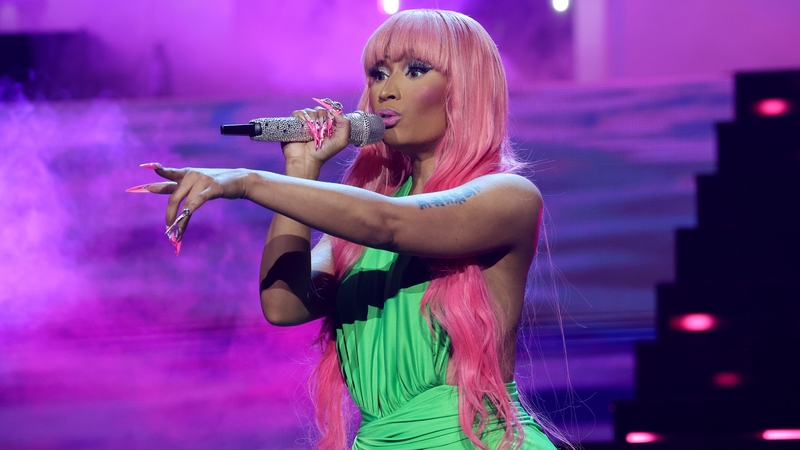Analysis: The controversy around Nicki Minaj's recent Dublin concert raises questions about our consumer rights when we buy concert tickets
Recent years have seen a significant reform and improvement of consumers' rights and remedies via the statute book with various pieces of new legislation. For example, the Consumer Rights Act 2022 replaces legislation dating from 1980, and as far back as 1893, and provides up-to-date consumer protection for the sale of goods, supply of services and the now ubiquitous supply of digital content and digital services, such as social media services. Another more recent example is the Representative Actions for the Protection of the Collective Interests of Consumers Act 2023, which seeks to bring, for the first time, a form of 'class action’ to protect the consumer interest to Ireland.
For most of us, it is only when something goes wrong that we have to consider this issue. Media reports about the recent Nicki Minaj concert at Dublin's Malahide Castle raises some interesting questions about consumer rights when we purchase concert tickets. The concert has been variously described by those in attendance as "disgraceful" and "worst concert ever", with some fans seeking refunds.
We need your consent to load this rte-player contentWe use rte-player to manage extra content that can set cookies on your device and collect data about your activity. Please review their details and accept them to load the content.Manage Preferences
From RTÉ Radio 1's Liveline, disgruntled listeners give out yards about Nicki Minaj's Malahide Castle show
Two main complaints seem to have dominated the media coverage after the concert, namely, the late start and the short duration of the concert. It was reported that the concert started 90 minutes late, which was not helped by the fact that it was raining, and this appears to have led to some fans leaving early due to false reports circulating that the concert was cancelled. The second complaint related to the shortness of the concert, reportedly less than an hour, including time taken for costume changes.
So, what are our rights in this scenario? First, consumer protection laws in relation to contracts for the supply of services (including services for amusement, cultural activities, entertainment, instruction, recreation or refreshment), are to be found in Part 4 of the Consumer Rights Act 2022.
Basically, the service provider (trader) must provide the service in accordance with the terms of the contract. The service must be provided at the time set out in the contract or, if no time is set out in the contract, at a time agreed between the parties or within a reasonable time after the conclusion of the contract if no time is agreed. In addition, the trader must have the necessary skill to supply the service and the trader must supply the service with reasonable care and skill. Where the trader fails to supply the service in conformity with the contract, the consumer is entitled to have the service brought into conformity (unless that’s impossible) or the consumer may seek a price reduction or a refund.
Nicki Minaj turned up more than 90 minutes late for a show in Dublin, leaving fans stranded -- and fuming. pic.twitter.com/XCu7w7qDYz
— TMZ (@TMZ) July 10, 2024
And against whom can a consumer assert their rights? In many scenarios, it is clear who the trader is, but live concerts are a collaborative enterprise with lots of different players involved. Most of us order and pay for our tickets for concerts and shows via a ticketing website, such as Ticketmaster, which delivers the tickets to us. However, a marketplace such as Ticketmaster is only an agent for the concert or event organiser, which could be a promoter (in this case MCD Productions), the artist or the venue. In any particular case, it is vital to identify the trader with whom you have entered into a contract for the supply of entertainment services, in order to assert your rights.
Unhappy Nicki Minaj fans face a number of hurdles if seeking redress. First and foremost, your rights derive from the contract agreed with the trader and most consumer contracts are ‘standard form contracts’, drafted by the traders’ lawyer, which the consumer must ‘take or leave’ as there is no room for negotiation. Thus, the trader remains in control to a large extend of their legal obligations to consumers.
If we examine the typical terms of contract when purchasing concert tickets, its rare to see contractual commitments about start times and concert duration. Instead, it is common practice to give information about start times closer to the concert date, but it is questionable whether this would have contractual effect.
#GagCityDUBLIN posted on IG 🍀🍀🍀🍀🍀🍀🍀🍀🍀🍀🍀🍀🍀🍀🍀🍀🍀🍀🍀🇮🇪🇮🇪♥️🇮🇪♥️♥️♥️♥️🇮🇪🇮🇪♥️♥️♥️🇮🇪♥️ pic.twitter.com/B4u35rKqOy
— Nicki Minaj (@NICKIMINAJ) July 7, 2024
Similarly, there are varying practices in terms of concert duration. Some performers use support acts but others don’t; some performers sing for three hours or more, while others don’t. Again, commitments about the duration of the performance are not usually found in the terms of the contract.
It is arguable that communications on the night were poor (leading to some fans leaving early, believing the concert was cancelled) but this hardly amounts to negligence. Ultimately, the concert was performed (albeit in an abbreviated form when compared with other concerts by the artist on the Pink Friday 2 World Tour), and most likely in conformity with the contract. Indeed, some fans reported being more than happy with the concert with Minaj following the full set-list of songs from recent concerts.
In the absence of the promoter offering ex gratia price reductions or refunds to disgruntled fans, a consumer could seek to pursue their rights via the Small Claims Court, where a negotiated settlement may be reached without the need for a court hearing for claims under €2,000. At the end of the day, the real looser here may be the artist herself, who has clearly lost some Irish fans as a result of this show.
Follow RTÉ Brainstorm on WhatsApp and Instagram for more stories and updates
The views expressed here are those of the author and do not represent or reflect the views of RTÉ


